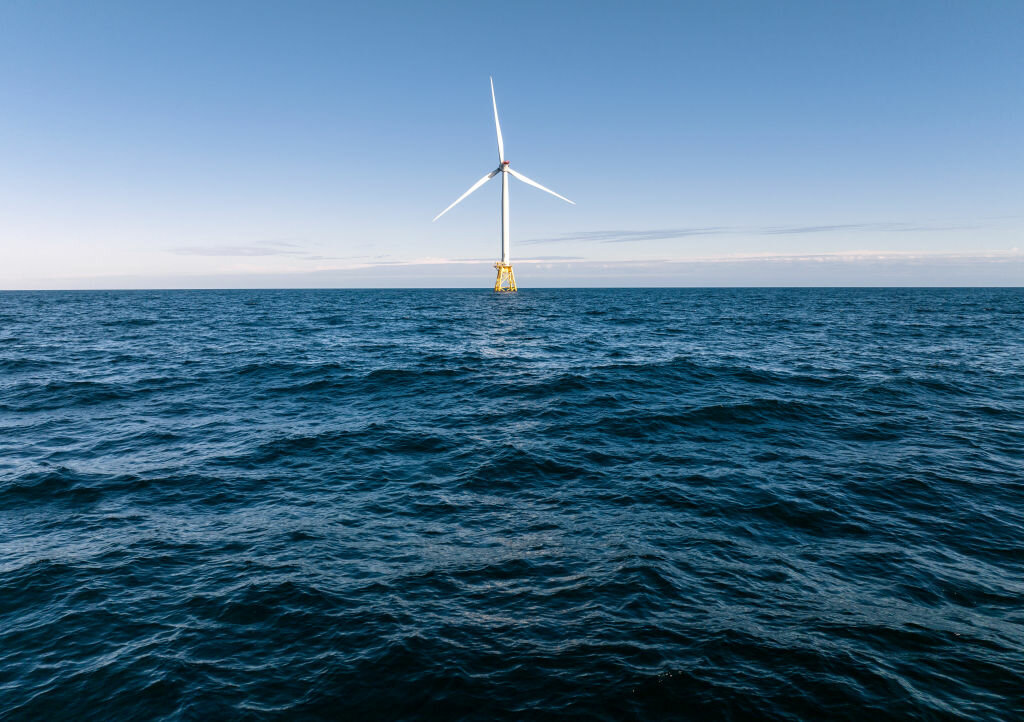State presses pause on SouthCoast Wind review
Wind energy developer has until Oct. 1, 2024, to secure a new contract with Massachusetts
It doesn’t make sense to review a project application when there’s no money to fund it.
So concluded state energy regulators, who on Thursday opted to pause their review of an …
This item is available in full to subscribers.
Please log in to continue |
Register to post eventsIf you'd like to post an event to our calendar, you can create a free account by clicking here. Note that free accounts do not have access to our subscriber-only content. |
Day pass subscribers
Are you a day pass subscriber who needs to log in? Click here to continue.
State presses pause on SouthCoast Wind review
Wind energy developer has until Oct. 1, 2024, to secure a new contract with Massachusetts
It doesn’t make sense to review a project application when there’s no money to fund it.
So concluded state energy regulators, who on Thursday opted to pause their review of an offshore wind farm’s transmission line if and until the developer secures new agreements guaranteeing the project’s financing. The Rhode Island Energy Facility Siting Board’s unanimous vote puts to rest a nine-month debate born out of SouthCoast Wind Energy LLC’s decision to renege on its existing power purchase agreements with Massachusetts utility companies in the hopes of getting a better deal.
The 500-turbine wind farm, planned off the coast of Massachusetts, was originally intending to bring 1,200 megawatts of power to the Bay State. While centered in Massachusetts, the proposal also needed the signoff from Rhode Island regulators on plans to run a underwater transmission line from the wind farm up the Sakonnet River, over Portsmouth and out Mount Hope Bay to reach land in Somerset’s Brayton Point.
Since learning of SouthCoast’s plans to try to rebid for new power purchase agreements in Massachusetts, energy board members have been weighing whether they need to continue their review of the transmission line.
The situation grew more complicated last month after a state ocean engineer sent an email to the energy board’s coordinator, accusing the developer of lying about its progress achieved in an application to another state agency. The email from David Ciochetto kicked off a flurry of contradicting accounts from the developer, the Rhode Island Coastal Resources Management Council and its fishing industry advisory panel, with little evidence to prove which narrative was true.
One fact all sides appeared to agree on: Coastal regulators have yet to accept an application from the developer for an assent into federal waters, because certain information needed from the company is not available yet.
Francis Slingsby, SouthCoast CEO, said in prior, written testimony to the energy board that the project was “moving forward with other important Rhode Island state permit applications,” including the assent. But the company reframed its messaging after the Ciochetto email and subsequent corroboration about the application status from Jeffrey Willis, executive director of the CRMC.
Chairman questions testimony
Ronald Gerwatowski, chairman of the energy board, pointed to the misleading nature of Slingsby’s original testimony in comments on Thursday. However, he ultimately concluded that the status of this application, as well as other allegations made by Ciochetto, did not affect the board’s consideration of whether to continue reviewing the transmission line.
Its decision instead rested on whether the project was commercially viable.
Which, according to Gerwatowski, there’s no proof of, since SouthCoast still has to win a bid in what is expected to be a competitive solicitation by the Massachusetts Department of Energy Resources.
And if there’s no wind farm, there’s no need for cables running up the Sakonnet River, which means taking the board’s time and resources to review the proposal would be “irresponsible,” he said.
“The siting board does not, as an agency, review hypothetical projects,” he said. “Asking us to hold hearings on this matter becomes a purely academic exercise. It would be irresponsible of the board to close our eyes to reality.”
By pausing review, rather than ending it altogether, the company does not have to start over with a new application if and when it wins a bid. The board’s vote gives SouthCoast Wind until Oct. 1, 2024, to submit proof that it has won a new contract with Massachusetts, along with how the new agreement might impact the existing route and design of the transmission lines. The developer can also ask for more time “upon reasonable grounds.”
According to a draft timeline filed with the Massachusetts Department of Public Utilities, the state anticipates awarding a bid and starting negotiations for power purchase agreements on up to 3,600 megawatts of wind power in June 2024.
Slingsby said in an emailed statement Thursday that the company was “disappointed” by the energy board’s decision.
“We remain confident that we will build our offshore wind project and deliver its benefits to the people and communities of Southern New England,” Slingsby said.
“While this one aspect of permitting is temporarily on hold, we continue to advance our permitting with federal, Rhode Island and Massachusetts state and local bodies. Our team is dedicated to safely building and delivering a reliable source of clean wind energy that will help states meet their greenhouse gas emissions goals. We will also provide substantial workforce and economic development opportunities that will support and strengthen diverse and underserved communities across southern New England.”
Rhode Island Current is part of States Newsroom, a network of news bureaus supported by grants and a coalition of donors as a 501c(3) public charity. Rhode Island Current maintains editorial independence. Contact Editor Janine L. Weisman for questions: info@rhodeislandcurrent.com. Follow Rhode Island Current on Facebook and Twitter.







